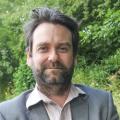
A BURY nurse is celebrating 50 years caring for people across Greater Manchester.
Adrian Ashurst started his career at the age of 18 in 1971, training at the Salford Royal Hospital. Now 68, he is based at Cygnet Hospital Bury, a specialist mental health service where he works as a specialist trainer and learning and development project manager for Cygnet Health Care.
Describing how nursing has transformed over the years, Adrian said: “For me, the biggest change would be technology and the introduction of life-saving equipment and medication. If you had a stroke at one time, people used to just say there is no hope. That’s no longer the case.
“There was a time too when nurses were discouraged from questioning anything and were simply required to carry out instructions. Now nurses take much more responsibility for making decisions in patient care and when students go to university, they are encouraged to question and to ask why.
“Another major change that I’ve seen is in the way that nurses are involved in the patient’s care. There was no such thing as a care plan in the past and there was nothing personal about your care. Now people have their own care plans that are individualised, holistic, and focused on their recovery, and nurses play a huge role in that, keeping patients and their families involved and encouraging them to take responsibility for their own health. That’s the right step forward and makes a huge difference.”
Adrian has no intention of slowing down and has recently started writing his fifth book called How to survive in Nursing, which he describes as "a practical guide to issues seldom covered in university lectures."
He is also currently collecting anecdotes and stories from nurses that he hopes will tell the story of nursing in the last 50 years.
In his spare time, Adrian works as the consultant editor of Nursing and Residential Care, a monthly journal available online for which has written over 200 pieces of work on a variety of subjects.
“I have to say it’s been a great career and I love every minute,” he said “What keeps me going is seeing people getting better so there is a lot of job satisfaction, especially when people thank you for their care. There has never been a dull moment.”
There is currently a national shortage of nurses, particularly in mental health, and Adrian is keen to encourage potential new recruits.
“Nursing over the years has changed in many ways but the basic principles remain true today as they did 50 years ago.
"A nurse’s role is to protect, care and support those individuals who are vulnerable and help ill people get better, so it’s important to have a passion for working with people.
“As we’ve seen in the NHS since the Covid pandemic, nurses shoulder a lot of responsibility, and now that nursing is a degree course, new recruits also need a strong academic ability as well as practical skills. But if you do it well, you will get a lot of satisfaction from it.”
Adrian added: “My colleagues at Cygnet have demonstrated remarkable resilience and dedication during the pandemic and have made sacrifices in order to keep our service users and each other safe, and I’m very proud of them.”



Comments: Our rules
We want our comments to be a lively and valuable part of our community - a place where readers can debate and engage with the most important local issues. The ability to comment on our stories is a privilege, not a right, however, and that privilege may be withdrawn if it is abused or misused.
Please report any comments that break our rules.
Read the rules here